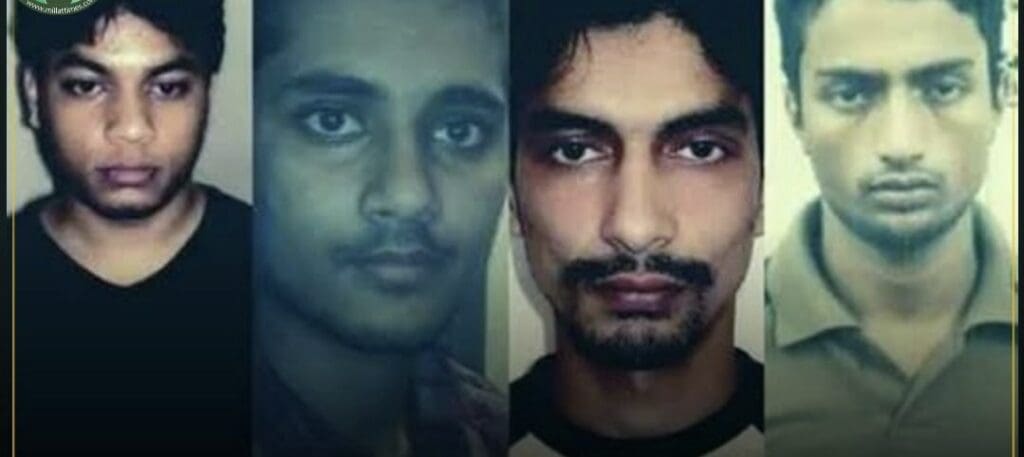
In a significant development, Rajasthan High Court has acquitted four Muslim men who were previously convicted and sentenced to death in connection with the Jaipur bomb blast case on the ground that prosecution has not been able to establish the chain of the circumstances to establish their guilt.
The acquitted are Sarvar Aazmi, Mohammad Saif, Saifur Rahman, and Salman.
The investigation was not fair and it appears that nefarious means were employed by the probe agencies” during the investigation, said the division bench of Justice Pankai Bhandari and Justice Sameer Jain.
“We therefore deem it proper, in interest of society, justice and morality, to direct the Director General of Police, Rajasthan, to initiate appropriate enquiry/disciplinary proceedings against the erring officers of the investigating team,” the division bench said.
The “material witnesses required to unfold the events” were withheld and “apparent manipulations and fabrications have been done during the investigation,” said the HC.
Justice Jain said the life and liberty of convicts, who are young individuals, is at stake, Live Law reported. As the accused were given death sentence, a very careful, conscious and meticulous approach was necessarily required to be made, the judge said. He also added that the trial court erroneously relied upon inadmissible evidence, ignored material contradictions and has also not properly considered the legal provisions.
“It is noted by this Court that the Investigation Agency has miserably failed in the discharge of their duties; they have performed poorly, the investigation was not only flawed but was also shoddy and the provisions of law as well as their own rules were overlooked. It is also observed by this Court that the Investigating Agency lacked the required legal skills as they were not aware about the statutory prerequisites and mandatory requirements. They have approached this case in a callous manner I.e. unbecoming of the members of uniformed posts. The approach of the Investigation Agency was plagued by insufficient legal knowledge, lack of proper training and insufficient expertise of investigation procedure especially on issues like cyber crimes and even basic issues like admissibility of evidence. The failure on the part of thelnvestigation Agency has frustrated the case of the prosecution and the evidence so recorded is not fulfilling the chain of evidence, Justice Jain said.
“This case is a classic example of institutional failure resulting in botched/flawed/shoddy investigation. We fear this isn’t the first case to suffer due to failure of investigation agencies and if things are allowed to continue the way they are, this certainly won’t be the last case in which administration of justice is affected due to shoddy investigation,” said Justice Jain.
The four men were sentenced to death on 20 December 2019 by a special court in Jaipur. However, the recent acquittal has come as a relief to them and their families who have been claiming that the Muslim men were framed in the case.
The Association for Protection of Civil Rights (APCR) played a significant role in fighting this case, and it was their legal team that represented the accused in court.
On May 13 in 2008, a number of explosions took place in Jaipur, resulting into death of 71 persons and injuries to 185 persons. A total of eight FIRs were registered in the matter. A day later, TV Channels claimed to have received an email in which Indian Muiahideen is said to have taken responsibility of the blasts.
Earlier, Farooq Paker, amicus curiae for all four Muslim men said, “This is the first case where death penalty has been circumstantial evidence. There was no direct evidence all four were falsely implicated. There were nearly 1300 witnesses and I cross examined all of them but not single one could identify any of these four men planting a bomb on the bicycle. Also bicycle purchase bill produced in the court is different than the frame number of bicycle used in the bomb blast.”
A report by criminal reforms advocacy group Project 39A showed that the trial courts in India passed 165 death sentences in 2022 – the highest in a single year since 2000.
This shift has been sharply influenced by the extraordinary sentencing of 38 Muslim men to death in Ahmedabad in a single bomb blast case, representing the largest number of persons sentenced to death in a single case since 2016.



